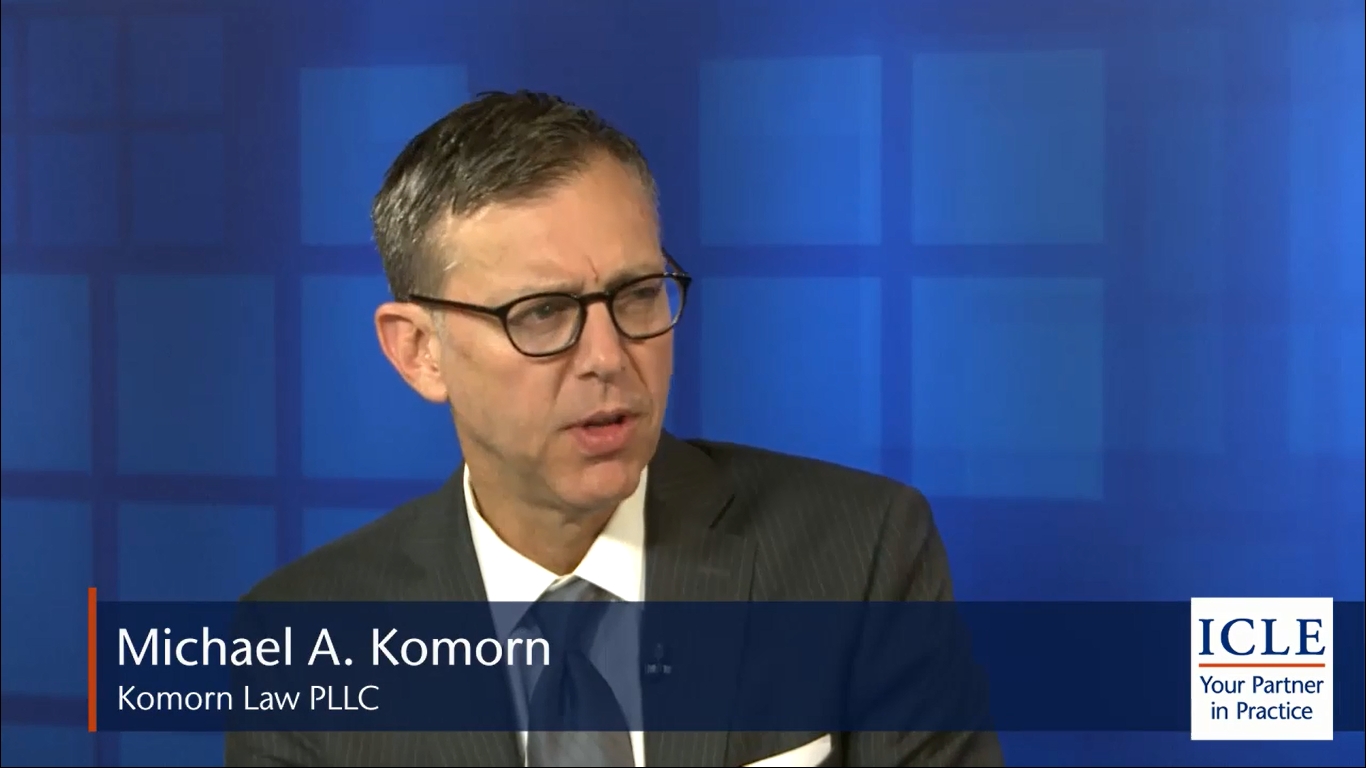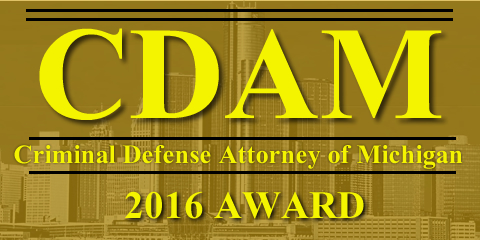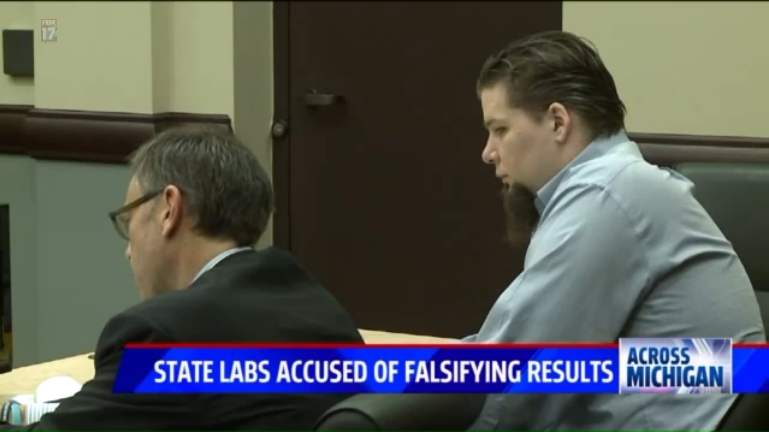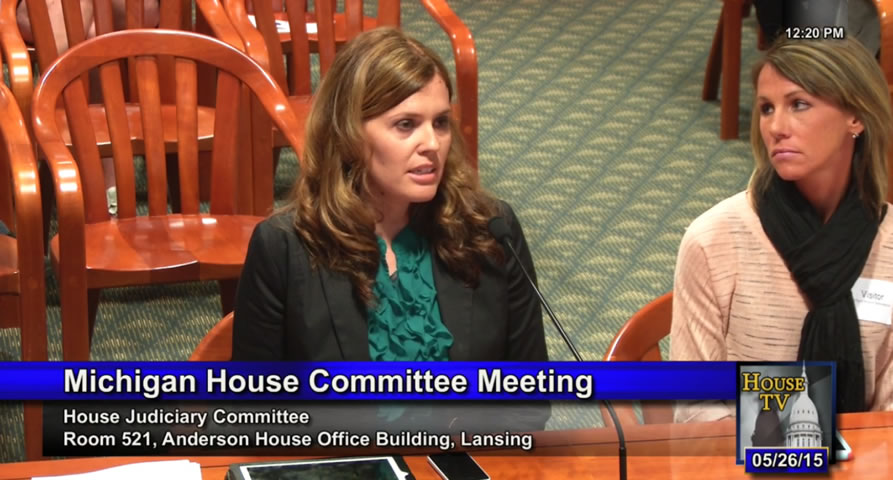
Mar 20, 2020 | Blog, Komorn Law In The News, News
Statement from First Natural Wellness, in conjunction with Komorn Law regarding telemedicine for medical marijuana
ANN ARBOR, Mich., March 19, 2020 /PRNewswire/
Michigan medical marijuana physicians, attorneys, patients, and their caregivers called on Governor Gretchen Whitmer to provide urgent and swift action via an executive order to allow certifying physicians the emergency capabilities to certify patients via telemedicine.
In times of need, communities stand
together to defend the weak. Komorn Law, First Natural Wellness, and the
Michigan Medical Marijuana Association (MMMA) is comprised of stakeholders and
citizens who are urging Governor Whitmer to take the COVID-19 pandemic
seriously by allowing physicians to provide telemedicine consultations for
patients who need medical cannabis therapy.
The Michigan Medical Marihuana Act
(“MMMA”) provides immunities for physicians to recommend medical
cannabis, and immunities for patients to engage in the medical use of
marijuana. The MMMA, as with other expectations of licensed physicians in Michigan,
requires that a bona fide relationship exist between the physician and the
patient. In April of 2012 (2012 PA 2012 512) the Legislature in Michigan by
a Super Majority vote amended the MMMA (2012 Public Act 512) to specifically
define the term “bona fide physician-patient relationship.” The
amendment to the MMMA created and defined the term “Bona Fide” as
follows:
(a) “Bona fide physician-patient
relationship” means a treatment or counseling relationship between a
physician and patient in which all of the following are present:
(1) The physician has reviewed the patient’s relevant medical records and
completed a full assessment of the patient’s medical history and current
medical condition, including a relevant, in-person, medical
evaluation of the patient.
Patient-Caregiver-Coalition (see details at end of article)
Said another way, only physicians
who interact with medical marijuana patients are required to meet in person and
or are precluded from those interactions occurring via telemedicine.
Legislators who lobbied for this
face-to-face requirement in the law were simultaneously approving telemedicine
visits for insurance reimbursements for almost every other medical visit except
medical marijuana consultations.
Many of the 300,000 Medical cannabis
patients are the sickest patients in the State. They have some of the most
severe conditions for physicians to evaluate, including Cancer, HIV/AIDS, Hep
C, Arthritis, and Glaucoma just to name part of the qualifying conditions list.
These are the sickest people in the state, and current law mandates that these
patients interact with their physicians in person. In light of the COVID-19
pandemic and the State of Emergency our Governor declared for the State of
Michigan, we are demanding that our state officials address this issue. This
enormous population of medical marijuana patients and their physicians are
currently being overlooked and ignored. Putting aside the
unexplained stigma excluding medical marijuana patients and doctors from
telemedicine, the existing policy is subjecting an enormous population of sick
patients and their physicians to a dangerous and irrational policy, arguably
which should never have existed.
Now is the time to urge Governor Gretchen Whitmer to protect all of our citizens, including patients and physicians. Please call Governor Whitmer’s office at 517-373-3400 or 517-335-7858 and urge her to let physicians provide medical marijuana certifications via telemedicine services immediately.
Contacts:
Michael Komorn, Komorn Law
www.KomornLaw.com
248-357-2550
First Natural Wellness, Michigan’s Most
Trusted Medical Marijuana Certifications
www.FirstNaturalWellness.com
866-649-9034
MMMA, Michigan Medical Marijuana
Association
www.MichiganMedicalMarijuana.org
Source PR Newswire: https://www.prnewswire.com/news-releases/statement-from-first-natural-wellness-in-conjunction-with-komorn-law-regarding-telemedicine-for-medical-marijuana-301026680.html
JOIN THE CAREGIVER – PATIENT COALITION.
Komorn Law and the Michigan Medical Marijuana Association have been at the forefront of the legal battles and in the trenches fighting fo patient, caregiver and physician rights since 2008. We are still fighting at this very moment to keep the caregiver system working while others are tryin to end it. So get on the lit to be notified as soon as the “pandemic” is over.
SIGN UP HERE TO BE NOTIFIED OF EVENTS OR HAPPENINGS.

Dec 18, 2017 | Blog, Marijuana Criminal Defense Attorney Michael Komorn, Medical Marijuana Attorney Michael Komorn
Michael A. Komorn
Komorn Law PLLC
Farmington Hills, Michigan
Michael A. Komorn focuses on medical marijuana representation. He is the president of the Michigan Medical Marijuana Association (MMMA), a nonprofit patient advocacy group with over 32,000 members, which advocates for medical marijuana patients and caregiver rights. Mr. Komorn is also an experienced defense attorney successfully representing many wrongfully accused medical marijuana patients and caregivers. He is a member of the Criminal Law and Marijuana Law Sections of the State Bar of Michigan.
Featured ICLE Contributions:
Civil Asset Forfeiture (Seminar)
Civil Asset Forfeiture
Property seized in the execution of a search warrant can be subject to civil forfeiture. Recovering this property requires a unique balancing of your client’s interests especially when they are facing potential criminal charges.
- Gather critical information from the search warrant and intent to forfeit
- Establish standing by providing evidence of ownership
- Advise clients on potential out-of-pocket costs including storage or impound fees.

Michael Komorn and Jeff Frazier talk to Rachael Sedlacek (Preview)
Dec 18, 2017 | Blog, Criminal Defense Attorney Michael Komorn, Medical Marijuana Attorney Michael Komorn
Here are some links to articles posted by Attorney Michael Komorn
US Government Collecting and Using Citizen Communications
NATIONAL TOXICOLOGY PROGRAM Technical Report Series No. 446 (1996)
Oral cannabis extracts as a promising treatment for the core symptoms of autism spectrum disorder
CBD-enriched medical cannabis for intractable pediatric epilepsy: The current Israeli experience
Why Marijuana Assets May Not Be Administered in Bankruptcy
Official Administrative Rules for Facilities Licensing Act
AG Candidate Patrick Miles Cannot Run From His Record
Michigan Medical Marijuana dispensary owner sentenced in federal court
If you or someone you know is facing charges as a result of Medical Marijuana recommended to you as a medical marijuana patient under the Michigan Medical Marijuana Act, contact Komorn Law and ensure your rights are protected. Michael Komorn is recognized as a leading expert on the Michigan Medical Marihuana Act. He is the President of the Michigan Medical Marijuana Association (MMMA), a nonprofit patient advocacy group which advocates for the rights of medical marijuana patients and their caregivers.
MMMA- Michael Komorn Blog Page – Click Here
Komorn Law Website – Click Here

May 9, 2017 | Blog, Michigan Medical Marijuana Criminal Defense Attorney Michael Komorn, News, Uncategorized
One of the state’s most active medical marijuana specialist attorneys has been honored by the Criminal Defense Attorneys of Michigan (CDAM) with their “Justice For All” Award.

Of the thousands of criminal defense attorneys in Michigan, Komorn’s record of going after the big guy- and winning- propelled him into the top spot.
The award is described by CDAM below:
“The Justice for All award is given to recognize a particular extraordinary contribution of a group of individuals. This contribution can be in the form of legal representation or other extraordinary service.”
Komorn won a dismissal of charges in the Max Lorincz case, which involved a prosecution and removal of a child based on a tiny smear of alleged marijuana concentrate found by law enforcement.

This case, and Komorn Law’s digging into the back story, revealed the scientifically invalid and politically motivated changes in reporting marijuana concentrates as ‘origin unknown’ by the Michigan State Police Crime Lab.
The Lorincz case underscores what Komorn has been fighting for all along: an unyielding pursuit of the truth and exoneration for patients caught in a system designed to capture them.
Although the Lorincz case is the most recent and notable victory for Komorn Law, his other accomplishments stand out as well. Praise for Komorn’s career has been easy to obtain.
Some of Komorn Law’s highlights from 2015 include:
Having the entire Lapeer County Prosecutor’s office tossed off a medical marijuana case for being biased.
Challenging the Michigan State Police Crime Lab as they pervert scientific method to satisfy the political needs of prosecutors
Becoming involved as a Commission Member on the new Marijuana Law Section of the State Bar Association of Michigan
As well as many successful defenses of patients and caregivers registered with the Michigan Medical Marihuana Act (MMMA) in courts across Michigan.

Komorn is joined in his legal efforts by his longtime friend and aide, Chad Carr, who shares in the successes recognized by the Award Committee.
Komorn is also the Executive Director of the Michigan Medical Marijuana Association and the host of a weekly radio talk show dedicated to MMMA patients and the attorneys that represent them. The Planet Green Trees Radio Show has received notoriety nationally; interviews with legislators, scientists and attorneys for the past five years have offered revelations and brought clarity to what can be a very confusing medical marijuana program.
In the case of Max Lorincz, Michael was so moved by the unjust treatment of a man and his family, that he took the case pro-bono.
See the articles in the media
The Criminal Defense Attorneys have already posted the award notice and the dinner details. CDAM offers this description of their organization on the group’s website :
“Michael Komorn’s zealous advocacy and activism in the field of marijuana law has been impressive and has inspired many lawyers, including myself, to do the same through his accomplished example,” said Barton Morris, also a CDAM member.
“Michael is a pioneer and champion in marijuana law in Michigan.”
Apr 14, 2017 | Blog, Medical Marijuana Attorney Michael Komorn, Michigan Medical Marijuana Act, Victories Project
Posted by Michael Komorn , 12 April 2017 · 792 views
Our client, a medical marijuana patient registered with the State of Michigan, was out for a boat ride and some fishing on his friend’s boat. What started out as a glorious day with intentions of sun and fishing on the Detroit river later turned into federal charges of possession of marijuana (21 USC 844, 21 USC 844a) when a Border Patrol agent pulled up to them and wanted to search their vessel.
Related: Michigan law regarding marijuana manufacture, delivery, and possession The federal border patrol agent required that the two passengers, my client and his friend, open all the containers in the immediate area, to which they complied.
After the agent found no contraband, he demanded that the occupants of the boat hand over the marijuana because, according to the agent, it smelled like marijuana on the boat.
Additionally, the agent said that if someone did not give him the marihuana, he was going to call the K9 unit. What does the driver of a car or boat say in response to a law enforcement officer demanding that the occupants of the vehicle hand over the marijuana, or else?
For a vehicle, we know that the traffic stop can’t or shouldn’t take last for any longer that it takes to execute the traffic stop, identify and inform the driver of the violation, and issue a ticket, if appropriate.
A traffic stop is not an opportunity to gather evidence of probable cause of the vehicle to search. That basic threat, calling the dogs, would be unconstitutional. That is to say, the delay in calling the dogs to get probable cause would be a delay beyond the scope of the lawful police interaction. The delay to call the dogs is a delay for the purpose of getting probable cause to search the vehicle. Most times this decision on how to respond should be determined on a case-by-case factual basis. In other words, depending upon what is within the vehicle, the driver may or may not comply with the request of the officer.
The rule of thumb, however, is to never consent to a search, ever. Equally important is the rule that you should never talk to the police or answer questions. Specifically, in these traffic encounters, or even vessel encounters, the investigated driver is not under arrest.
The encounter is an interaction called an investigation, and anything that is said during this encounter will be used against you. Ultimately, our client handed over the marijuana cigarettes and his patient card.
As my client was reminded by the Border Patrol Agent, there is no medical marihuana on federal jurisdiction. Or said another way, it was the intent of this agent to make a federal case out of it.
After being retained by our client, and after a few pretrial conferences and conferences with the Assistant United States Attorney, we learned that it was also the intent of the United States Government to make a federal case of it. Federal jurisdiction, as mentioned above, is a very different venue to litigate a marihuana case, even if it’s just for a joint or two.
The liabilities for punishment are much greater, and in certain situations get worse, the more the accused litigates the case. That is to say, any benefits of resolving the case with a plea bargain are minimized should you force the government to litigate the case. It is under these circumstances that we needed to make our decisions on how to proceed.
As we got closer to the day of trial, the Government offered a number of different plea offers and options to resolve the case. Unfortunately, none of them contemplated the medical use of marihuana while being supervised on probation.
Similar to many of the State Courts throughout Michigan, the likelihood of any probation supervision of any kind would preclude the medical use of marihuana.
Not directly pertinent to this case either factually or due to our federal court venue, the only Michigan case law that addresses the issue is a recent case in the Court of Appeals, People v Magyari, the defendant argued that, pursuant to the MMMA, the court could not prohibit his medical marijuana use during probation because he possessed a patient card, but the court’s opinion characterized the defendant’s use of marijuana as non-medical, and did not apply their reasons for upholding the lower court decision the appeal to all cardholders.
A probation condition disallowing his medical use of marijuana was not acceptable to my client, and besides, who would want to plead guilty to something that the state government has authorized you to possess, let alone be on probation for the same behavior? So as often is the case, the choices that presented themselves compelled us to reject the offers to plead guilty and instead litigate the case.
Our response to the offer to plead guilty was to file a “Motion to Dismiss Based Upon Justice Spending Funds to Prevent Implementation of Michigan Marijuana Laws.” I think it is more than ironic that as we put together the motion challenging the federal government’s authority and jurisdiction to prosecute the matter, the issue of States’ Rights was in the forefront in a national debate. As outlined in the motion, the legal authority prohibiting the jurisdiction of the government in our matter was vitiated by the Cole memorandum – both of them.
Additionally, the Rhorabacher-Farr amendment was more than clear in its intent to preclude federal agents employed by the DOJ, including the DEA, from investigating or prosecuting medical marihuana patients that are in compliance with state law. If there was ever a case with the perfect facts to prevail upon it would be this case, and the mere two marijuana cigarettes.
In contrast, the circumstances of the case cited, US v McIntosh, dealt with dispensaries and commercial marihuana sales. Our case was as authentic patient activity as one could find. After filing the motion to dismiss, and appearing for the motion hearing, we learned that the Government had decided to dismiss the case. The AUSA indicated to me that he had “no desire to go to the mat with me on this case” and he was “not going to make bad case law with this case.” Or said another way, he knew that he was going to lose, and instead of dealing with that result which would be precedent and impact the entire Sixth Circuit Trial Court, he thought it best to dismiss the case, and let us go on our way.
The moral of this story is that when they make a federal case out of it, you should do the same.







